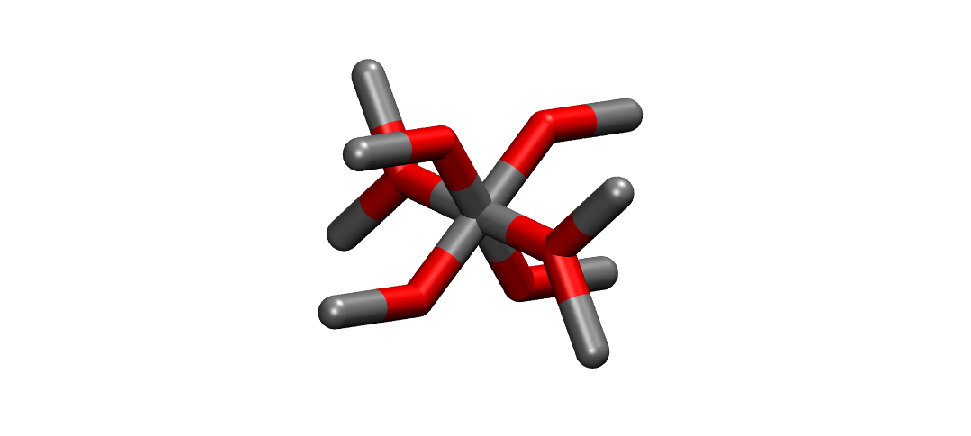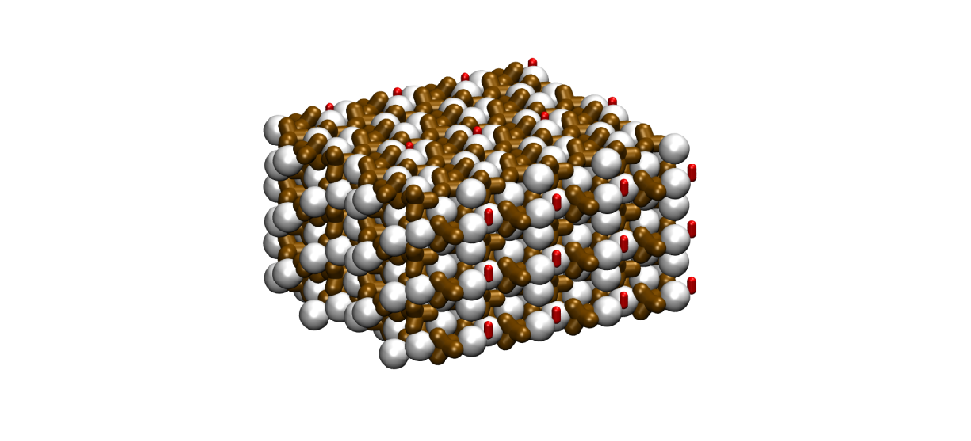Simulations
Metals such as titanium are already widely used in bio-medical applications such as hip replacements and dental implants replacing damaged bone and tooth matter. However, despite titanium’s bio-compatibility, the immune response in many patients results in the rejection or failure of the implants. Molecular scale modeling of soft matter (biological) - hard matter (inorganic/metal) interfaces may help us identify protein functional sites or aspects of a surface’s microstructure that play a role in triggering this immune response.
From the materials science perspective the study of natural inorganic composites such as apatite and calcites via atomistic modeling may provide insight into the processes that nature utilizes to produce a wide range of varied and specialized materials including mother of pearl, bone and tooth enamel. While producing these materials on a commercial scale would be of great value, scientists are still struggling to replicate these materials and their morphologies in the lab.

